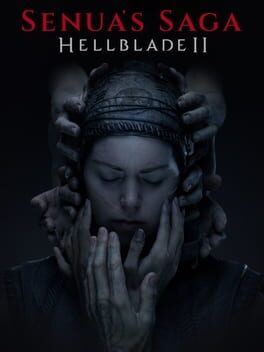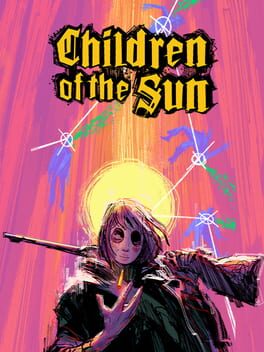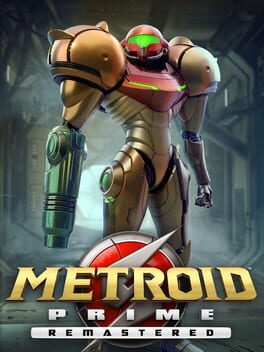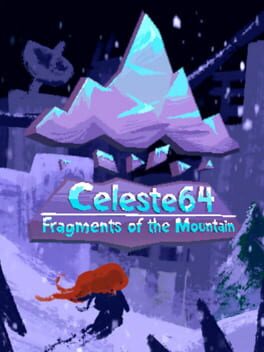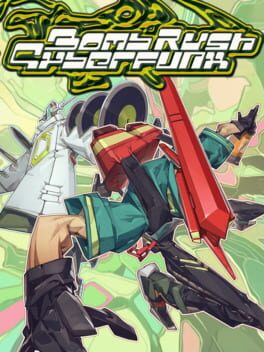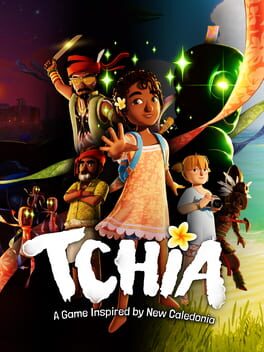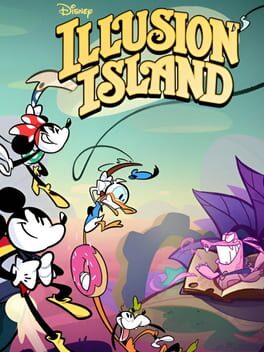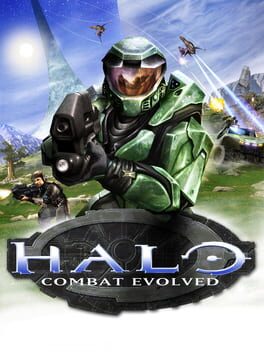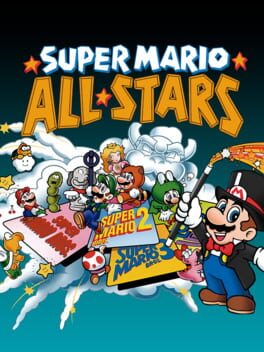jdthorne
There were two games that I thought about a lot when playing this one. The first was, fucking obviously, Hellblade: Senua's Sacrifice. This is in every way a doubling-down on what that game did, for better and worse. It's remarkably stunning from a presentation perspective, achieving a level of photoreal with a few dozen developers in ways that teams of 2000 are only occasionally capable. That's thanks to the team at Ninja Theory taking their sweet time with it and keeping the vision restrained enough to be deliverable. The soundscape is, like before, deeply intricate and makes wonderful use of binaural recording. Melina Jurgens is still giving a powerhouse performance, but now she's joined by a small supporting cast of excellent performers; it's nice to see Senua and her inner voices actually react to other real people. On the flipside, the puzzles are exactly the same as before; while it is in some regards commendable that they found a mechanical use for her third-eye, so to speak, running around a small room and lining up random objects in front of you is often tedious. Likewise, the bits of lore hidden in the corners are a nice touch, but the fact that you can't listen to them while walking to your destination kills pacing. The combat this time is extremely cinematic, with a greater emphasis on one-on-one fights that require you to constantly pay attention, dodge attacks and wait for openings. While I like the more intentional design as opposed to the button-mashing of the first, the cropped aspect ratio makes it harder to judge attack distances and results in a lot more confusion and accidental deaths unfortunately. Overall, I'd say that what you thought of the first game is going to be a big part of how you think about this one.
The second game this reminded me of, however, is The Last of Us: Part II. Fittingly, since they're both Roman-numeralled sequels to extremely cinematic, female-driven action games. However, the real influence here is the story and themes. Both are primarily revenge tales, both giving our protagonists a very strong and reasonable motivation for seeking it out while also attempting to see the other side as something more than monstrous. For a long stretch of the game, actually, this works fairly well. Where The Last of Us is very intentionally player-hostile, choosing to have the protagonist's motivation so immediately personal and then expecting us to make a great leap in both-sidesing, Senua's Saga plays their cards more delicately from minute one, and to greater effect. Senua arrives in Iceland more motivated to stop the slave-capturing Nords than to murder any one individual, and she's immediately given a high-ranking Northman to best in battle and then demand assistance and companionship from. It's subtle, but gradually easing these themes of empathy into the narrative makes the places it takes the character more believable. On top of this, the theme of empathy relates to the secondary enemies of the game: the Giants, whom require a more emotionally-intuitive approach to defeating than anyone other than Senua seems capable of. Overall, the story remains fairly tight throughout most of the runtime, though it's unfortunately spoiled in the end by a final villain whose characterization muddles the thematic resolution.
Ultimately, I'm very mixed on this. It briefly touches brilliance at times, with excellent characters, compelling themes and a deft sense of artistic direction. However, it struggles in pace, has mediocre gameplay and bungles the resolution a way that leaves a lot to be desired. It's of a piece with the previous game to be sure, but feels weirdly less cohesive despite the greater polish. I hope Ninja Theory gets spared in the next inevitable Xbox Studios purge, because they're a really fascinating developer and I want to see what they do next.
The second game this reminded me of, however, is The Last of Us: Part II. Fittingly, since they're both Roman-numeralled sequels to extremely cinematic, female-driven action games. However, the real influence here is the story and themes. Both are primarily revenge tales, both giving our protagonists a very strong and reasonable motivation for seeking it out while also attempting to see the other side as something more than monstrous. For a long stretch of the game, actually, this works fairly well. Where The Last of Us is very intentionally player-hostile, choosing to have the protagonist's motivation so immediately personal and then expecting us to make a great leap in both-sidesing, Senua's Saga plays their cards more delicately from minute one, and to greater effect. Senua arrives in Iceland more motivated to stop the slave-capturing Nords than to murder any one individual, and she's immediately given a high-ranking Northman to best in battle and then demand assistance and companionship from. It's subtle, but gradually easing these themes of empathy into the narrative makes the places it takes the character more believable. On top of this, the theme of empathy relates to the secondary enemies of the game: the Giants, whom require a more emotionally-intuitive approach to defeating than anyone other than Senua seems capable of. Overall, the story remains fairly tight throughout most of the runtime, though it's unfortunately spoiled in the end by a final villain whose characterization muddles the thematic resolution.
Ultimately, I'm very mixed on this. It briefly touches brilliance at times, with excellent characters, compelling themes and a deft sense of artistic direction. However, it struggles in pace, has mediocre gameplay and bungles the resolution a way that leaves a lot to be desired. It's of a piece with the previous game to be sure, but feels weirdly less cohesive despite the greater polish. I hope Ninja Theory gets spared in the next inevitable Xbox Studios purge, because they're a really fascinating developer and I want to see what they do next.
2024
The gameplay itself is remarkably satisfying; pulling off fifteen trick-shots in a row without losing multiplier while also completing the side objective gives you the satisfaction of a Hitman level going exactly as planned or getting a speedrun just right. The style is appropriately chaotic and grimy for the dark revenge tale with a fantastical twist. However, I do think the controls are a little odd, the side objectives are described too vaguely sometimes, and the cutscenes are a little too frenetic to catch exactly what the backstory is. It's also very short, which isn't a big issue but I would've liked a few more levels just to see how far they could take the concept. Fun, short puzzle-shooter.
Good game. Excellent level design, art direction, creature designs, sound design, and music. Unfortunately I think the actual combat is clunky and the story lacks a compelling hook. Still proved that this type of game could work as a 3D shooter which is impressive, and I'd say it's an essential title for anyone diving into sixth-generation games. But if you're looking for a great Metroid on the Switch this is not as easy to recommend; it holds its own, but Dread is far superior.
2013
14 year old me's mind was super blown by this game, but now... eh not so much. the story has its moments where the themes really feel compelling, in particular ideas of fatalism, the roots of systemic problems, religious dominance, and the unfixable self are really well-explored. the central relationship of booker and elizabeth feels dynamic and interesting and they're both performed inpeccably. and the art direction is lush and detailed to contrast the grim narrative. however i think it really loses me as a shooter; few of the enemies take any strategy to kill, making the vigors seem mostly there as a reference to the original and combat a real chore. the game also loses steam in the middle where the vox populi and daisy fitzroy really feel underbaked, which sucks cause in a lot of ways she's a foil to booker's neutralism and could've served a greater role. it's a real mixed bag of a game, but it's worth checking out if you haven't already.
1998
2018
2023
I really, really, really wanted to like this, but beyond the charm of its Y2K aesthetics, music and style I couldn't really get into this much. There's fun to be had, but I don't find the primary mechanic, chaining tricks together to make massive combos, to be all that dynamic or engaging. The combo system is very rigid and will not tolerate even the slightest mistake, which paired with a lot of open spaces, limited tricks, and finnicky controls makes the experience as often grating as satisfying. World design is sometimes well-designed and looks really cool, but other times lacks the clarity needed for precision platforming. And the combat is unforgiveably bad, only functional in the technical sense but having absolutely no flow or satisfaction.
And I like the idea of collecting the various tags, music and other collectibles in concept, but that also means that early on you have very little options for the soundtrack or graffiti. For the music this means you'll be hearing a lot of the same few tracks early on, and for the tags it means you'll muscle memory a few of them early on and then those are the ones you'll accidentally default to the rest of the game.
I will say the real shining spot here is the aesthetics. From its low-poly character models who often dance in place just cause, to the sounds of grinding on rails and the little hip-hop blast that hits every time you tag a building, to the absolutely jamming soundtrack, everything that's interacting with your eyes and ears is pure candy. It's also a pretty funny game at times; I remember the belly laugh I'd have every time I fell off the edge of a map and whichever character I'm playing as has a different, hilarious death scream (my favorite is Tryce's "AW SHIIIIIiiiiiii-").
For almost every positive this game has in terms of design and style it has a big downside, which is unfortunate. It seems I'm in the minority here, but as someone with no nostalgia for the game's inspirations I think it's worth saying that this doesn't feel fleshed out enough to stand on its own merits. I guess if you just really like Jet Set Radio this will be for you, but otherwise it's a neat 3D platformer with a lot of heart and charm but feels underbaked mechanically.
And I like the idea of collecting the various tags, music and other collectibles in concept, but that also means that early on you have very little options for the soundtrack or graffiti. For the music this means you'll be hearing a lot of the same few tracks early on, and for the tags it means you'll muscle memory a few of them early on and then those are the ones you'll accidentally default to the rest of the game.
I will say the real shining spot here is the aesthetics. From its low-poly character models who often dance in place just cause, to the sounds of grinding on rails and the little hip-hop blast that hits every time you tag a building, to the absolutely jamming soundtrack, everything that's interacting with your eyes and ears is pure candy. It's also a pretty funny game at times; I remember the belly laugh I'd have every time I fell off the edge of a map and whichever character I'm playing as has a different, hilarious death scream (my favorite is Tryce's "AW SHIIIIIiiiiiii-").
For almost every positive this game has in terms of design and style it has a big downside, which is unfortunate. It seems I'm in the minority here, but as someone with no nostalgia for the game's inspirations I think it's worth saying that this doesn't feel fleshed out enough to stand on its own merits. I guess if you just really like Jet Set Radio this will be for you, but otherwise it's a neat 3D platformer with a lot of heart and charm but feels underbaked mechanically.
2023
i don't wanna rate or review this game traditionally cause i didn't get very far, HOWEVER i do need an outlet to say that the PS4 version is very unoptimized and i wouldn't recommend picking up that version. framerates are choppy and character models look stiff. i get that it wouldn't get as much attention as the newer platforms, but also if you're putting out a physical "special edition" of a game it should at least be adequately optimized. this is the console that runs The Last of Us Part II; there's no decent reason why it couldn't run this at stable, presentable performance.
There's a lot to appreciate about this game. The voice performances are great, the action is tight, there's a few remarkable setpieces, and the side quests itch that "friendly neighborhood" part of Spider-Man that I feel is missed in most other adaptations. However, I think that some of the digressions of the plot are unnecessary, the dialogue is functional but mediocre, Miles gets sidelined for a little too long, and there's a bunch of awful minigames scattered throughout. It's a landmark title for the PS5 for sure, albeit a flawed one.
2023
While definitely more of a puzzle game than Limbo or Inside before it, it shares that sense of trying to parse the inner logic of a world purely through aesthetics and mechanics. The puzzles are satisfyingly mind-bending and the art direction is impeccable. However, I feel like the puzzles sometimes become too mechanically frustrating, and the end is intriguing but a little hollow. Worth checking out.
This game happened to arrive the weekend I was sick with the flu, and honestly I can't think of a better way to experience the game. It's really low stakes, sometimes in ways I wish it wasn't. The story is lackluster and there's little things like fast-travel and map design that lack polish. But if you're looking for a really laid-back Metroid-like with nice art, robust platforming, great music and a lot of Disney-themed collectibles to find, this will be for you. Just keep those expectations in check cause it probably won't blow you away. Great for kids or people just looking for something chill.
2001
It's hard to argue that this game isn't one of the most important ever made. It reinvented the console first-person shooter so drastically that basically every one since then uses the same gamepad layout. To this day it still looks, feels and sounds fantastic to play (provided you're not on original hardware; I tried it but switched to the Gearbox port halfway through just to get a stable framerate). And the worldbuilding is stellar.
But it's not perfect. Most of its issues feel like they stem from the incredibly rushed production timeline (reportedly ONE YEAR): a fairly standard sci-fi plot; labyrinthine, repetitive interior levels; clunky vehicle controls; and frustrating difficulty spikes, especially after the halfway point.
Ultimately, it's a product of its time and the deadlines forced on Bungie. But it still stands the test of time, it always will, and it laid the groundwork for not only a franchise but a whole genre.
But it's not perfect. Most of its issues feel like they stem from the incredibly rushed production timeline (reportedly ONE YEAR): a fairly standard sci-fi plot; labyrinthine, repetitive interior levels; clunky vehicle controls; and frustrating difficulty spikes, especially after the halfway point.
Ultimately, it's a product of its time and the deadlines forced on Bungie. But it still stands the test of time, it always will, and it laid the groundwork for not only a franchise but a whole genre.
